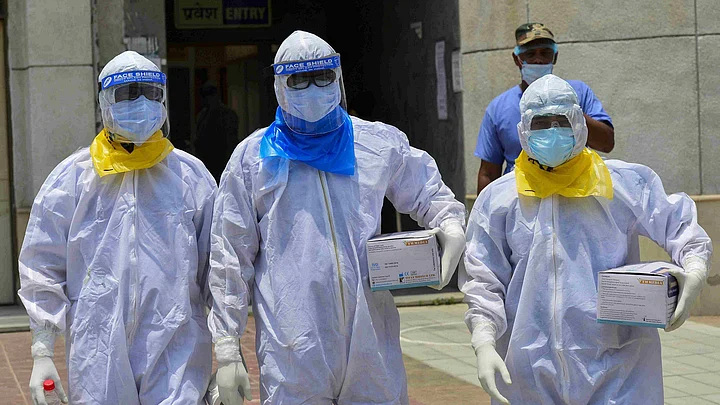The central government informed the Delhi High Court that it has asked all states and Union Territories to ensure strict compliance with the national COVID-19 management directives and to take necessary measures under the National Disaster Management Act.
The order, issued by the Ministry of Home Affairs on 26 June, also asked states and Union Territories to consider implementing prompt and targeted actions to manage the pandemic until 31 July. The Centre added that while opening of activities after a decline in COVID-19 cases was essential, states and Union Territories must do so only after ensuring that the process is "carefully calibrated", reported PTI.
The Centre's statement was a part of a status report filed by its standing counsel Anil Soni, in connection with the Delhi High Court's suo motu proceedings on violation of COVID-19 protocols in various areas in the national capital.
The Centre has stated that the national directives for COVID-19 management include covering ones face, social distancing, not spitting in public places, work from home, and frequent sanitisation of shared spaces.
"MHA also directed states/Union Territories that National Directives for COVID-19 Management shall continue to be strictly followed throughout the country," the report reads.
The Centre clarified that the decision to impose and ease restrictions must be taken after assessing the ground-level situation. It stated that the authorities should ensure continuous focus on containment efforts and "uniformity in implementing graded restrictions/relaxations", as reported by PTI. It also informed the high court that the Centre had shared the "framework for implementation of prompt and target action" with the states.
The framework discusses a "five-fold strategy for effective management of COVID-19", which includes testing, tracking, treating, vaccinating, and ensuring adherence to COVID-appropriate behaviour.
States remain at the liberty to plan and implement additional health measures, depending on the local situation.
A vacation Bench of the Delhi High Court had initiated a PIL in June after one of the court's judges received photographs by an AIIMS doctor, showing disregard for COVID-19 protocols by vendors in markets in the national capital.
The court observed that such breaches would speed up the arrival of the third wave of the coronavirus and cannot be permitted.
As per PTI's report, the Bench remarked that, "We have paid a huge price in the second wave. We don't know if there is any household that has not suffered in the second wave, closely or remotely."
Adding that, seeing such images was worrisome as citizens of India, the court said that many people suffered personal losses during the second wave of coronavirus and that its memory was still fresh in people's minds.
(With inputs from PTI.)
(At The Quint, we question everything. Play an active role in shaping our journalism by becoming a member today.)
